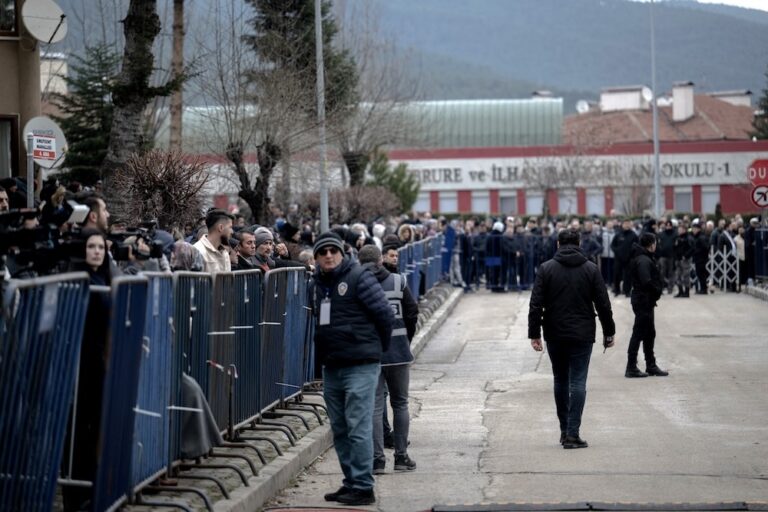An order for the punishment of 63 prisoners at the Sincan No. 1 F Type Prison in Ankara was issued after they celebrated Labour Day by marching and chanting slogans.
(BIANET/IFEX) – 21 June 2011 – An order for the punishment of 63 detainees and convicts at the Sincan No. 1 F Type Prison in Ankara was issued after they celebrated Labour Day on 1 May 2011 by chanting slogans and carrying out marches, just like their colleagues outside the prison. Fifty-seven inmates were “banned from communications” for one month, while six convicts and detainees were barred from receiving visitors for the same period of time.
The prison administrators monitored the activities of the 63 political detainees and convicts from blocks A, B and C of the prison and launched an investigation into the inmates’ actions on Labour Day. As a result, the Disciplinary Board of the Ankara No.1 F Type High Security Prison Directorate decided that the 63 detainees and convicts should be punished.
The board based its decision regarding 57 of the detainees and convicts on Article 42 of the Law on the Execution of Sentences and Security. According to that decision, the inmates were barred from “sending and receiving letters, faxes and telegrams, watching television, listening to the radio, conducting telephone calls and using other tools of communication for a duration of one month.”
In the case of the other six convicts, who were originally given the punishment of “suspension of communications”, it was later determined that they should be deprived of receiving visitors for one month. An appeal against the decision was filed.
Lawyer Evrim Deniz Karatana told BIANET that these forms of punishment would be added to the overall sentences of the convicts in the event that the sanctions are actually finalized.
“The law is problematic because the term ‘pointless slogan’ is confusing and open to arbitrary application. (. . .) Moreover, anybody can decide individually which slogans he or she wants to chant on 1 May,” Karatana explained.
“The prison managers know of this right and extensively exercise it themselves. This sort of arbitrary application is very common. Detainees and convicts are subjected to this type of punishment frequently. This is contrary to human rights principles,” the lawyer noted. “Decisions regarding the handing out of non-prohibited books and magazines ordered by the inmates are also arbitrarily made by the prison managers. We noticed that several publications were not given to the convicts because ‘they [allegedly] constituted a threat to prison security’. This is the result of ‘isolation applications’. The objective of these applications is to oppress the detainees and convicts, make daily life more difficult and ‘improve’ the inmates’ opinions.”
In February, the book “The Return to Life Operation, from the Ward to the Cell”, written by lawyer Guclu Sevimli, was banned from the Sincan No. 1 F Type Prison. The book deals with the highly controversial “Return to Life Operation” and the transition period at Turkish F type prisons. It was banned for “conveying a bad image of prisons with (smaller) cells,” allegedly showing a “negative” image of F type prisons and encouraging convicts to carry out “death fasts”.
Karatana reported that the appeal against the ban on the book is being evaluated. The lawyer said that an application for review of the decision would be submitted to the European Court of Human Rights if the appeal is dismissed.


